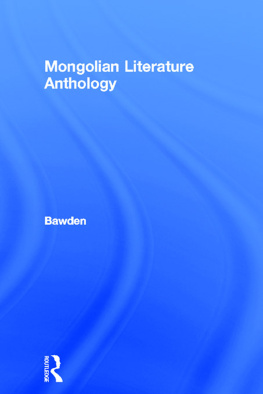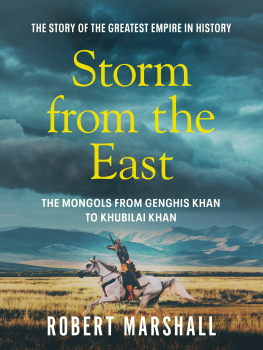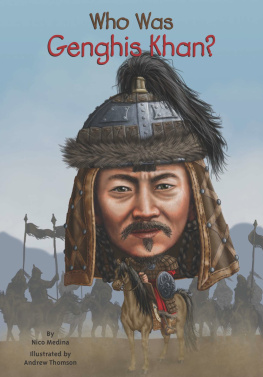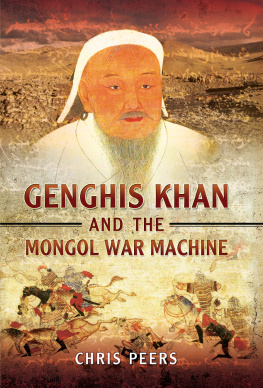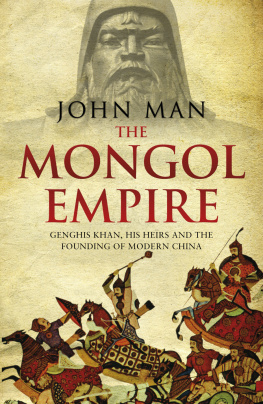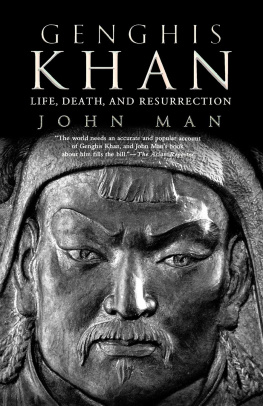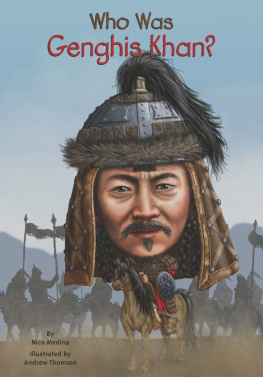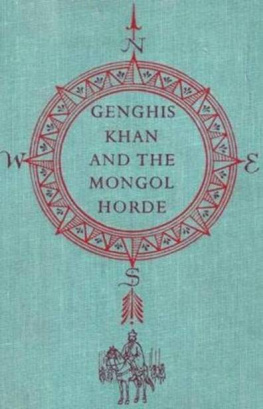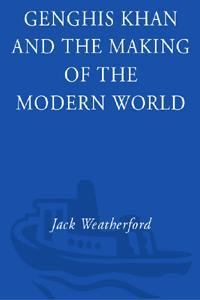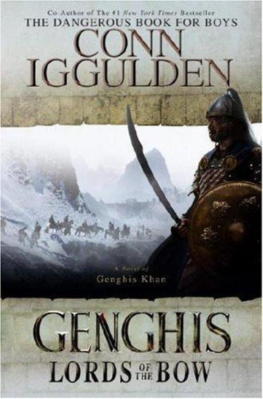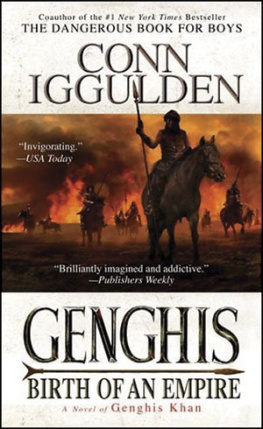C. R. Bawden, 2003
All Rights reserved. No part of this book may be reprinted or
reproduced or utilised in any form or by any electric, mechanical
or other means, now known or hereafter invented, including
photocopying or recording, or in any information storage or retrieval
system, without permission in writing from the publishers.
PREFACE
The intention of the present book is to introduce readers to some of the various genres of literature, both oral and written, in which the genius of the Mongolian people expressed itself from early beginnings in the thirteenth century up to the end of the nineteenth century. The translations are all my own, though naturally some of the passages I have chosen have been translated previously by others. I hope that my choice of items to translate, and the styles in which I have chosen to present them, will meet with the approval, or at least the understanding, of my readers.
The terms Mongolia and Mongolian need some explanation. In formal terms there is today only a single country named Mongolia. This is, roughly speaking, the territory which at one time was known as Outer Mongolia and then, from 1924 to 1992, as the Mongolian Peoples Republic. It lies between Russia in the north and China in the south. More Mongols dwell outside Mongolia itself than within its borders. South of Mongolia lies the Inner Mongolian Autonomous Region of China, much influenced nowadays by Chinese culture, but linguistically and in other respects close to its northern neighbour. These two areas form, as it were, the Mongolian heartland, and it is their literature which is presented in the present book. North of Mongolia dwell the Buryats, heavily influenced by Russian politics and culture, and far to the west, this side of the lower Volga, dwell the Kalmucks, of whom much the same can be said. Small isolated groups of Mongols are to be found elsewhere in mainland Asia, and in Taiwan, Europe and the U.S.A.
Mongolian culture is to all intents and purposes a unique one. The Mongols were, and to some extent still are, a horse-riding folk, living a mobile life accompanying their flocks and herds. But always they have been inclined to settle in fortresses, trade-cities, lamaseries, and today in towns and conurbations, when conditions favoured that process. When we first meet them, they worshipped the Blue Sky and lived in a universe peopled by local deities and shamanist spirits. Theirs was a clan society, much given to warfare amogst themselves, and, in the time of Genghis Khan, on an international scale. Then, in the late sixteenth century, they began to be converted to Tibetan forms of Buddhism. Some lamaseries were loyal to unreformed Buddhism, but for the most part it was the Yellow Sect, or Gelugpa, Buddhism which prevailed. Mongols usually refer to Buddhism as Sharyn Shashin, the Religion of theYellow. Earlier contacts with Tibet during imperial times, followed by this second, more permanent conversion, had a profound effect on language and culture. The incorporation of Inner and Outer Mongolia, from the seventeenth century onwards, in the Manchu-Chinese empire, brought about further fundamental change. Mongolian literature reflects these vicissitudes. The most recent developments, the dominance and now the collapse of a Soviet-inspired culture, lie outside our scope, but I have trespassed to a small extent on this field where it seemed legitimate to do so. I hope that my translations will give my readers a little insight into these changing world-views of the Inner Asian Mongolian people.
To present in an intelligible way texts written within a culture so different from that of ones readers requires a certain amount of elucidation. I have tried to keep irritating footnotes to a minimum, but I have not been able to dispense with them altogether. I have to confess that I have not always been fully confident of the accuracy of my translations, for texts can be corrupt, spellings confused, and dictionaries inadequate, and, above all, ones own knowledge is limited. But I trust that any mistakes I have made will not detract from the overall correct interpretation of the originals which I have aimed to achieve.
Charles Bawden
CONTENTS
INTRODUCTION
Readers of English who would like to know something of Mongolian literature and to sample it are not well served. There is, as far as I know, no account in English in book form of the history of the literature which the Mongolian peoples have built up over the last eight hundred years. It is ironical, though, that two of the first European scholars to acquire a thorough knowledge of the Mongolian language and to explore its literature were in fact British subjects. Edward Stallybrass and William Swan, missionaries of the London Missionary Society, one English and the other Scottish, were sent to eastern Siberia in the early part of the nineteenth century, charged with the duty of bringing the Christian gospel to the Buryat Mongols, a Mongolian people living north of the frontier with China. They were the first to lift the veil for English speakers on what was, until then, a more or less unknown part of the Asian world. They were men of quite extraordinary ability. They had first to learn Russian, the one European language which enabled them to live their daily lives in remote Siberia, and to gain their first scholarly insights into the Mongolian language and Mongolian culture. They became fluent in spoken Buryat-Mongol and in the written Mongolian language. It was also necessary, in order to use dictionaries, to master Manchu and Tibetan, and the latter language also provided them with a key to the understanding of Mongolian Buddhism or Lamaism. They compiled their own dictionaries and grammars and, as soon as they felt themselves capable of it, they devoted themselves to the task for which they are still remembered, the translation, from the original languages, not from English, of the whole Bible into Mongolian. They printed the Old Testament on their own press in Siberia, and the New Testament was printed for them, first in England and later in Russia. They collected Mongolian books, or had copies made, and a number of these belong nowadays to the British Library. But they chose deliberately not to become scholars, considering that to do so would detract from their main task as missionaries, with the result that no tradition of learning in the field of Mongolian culture sprang from their unique experience.

